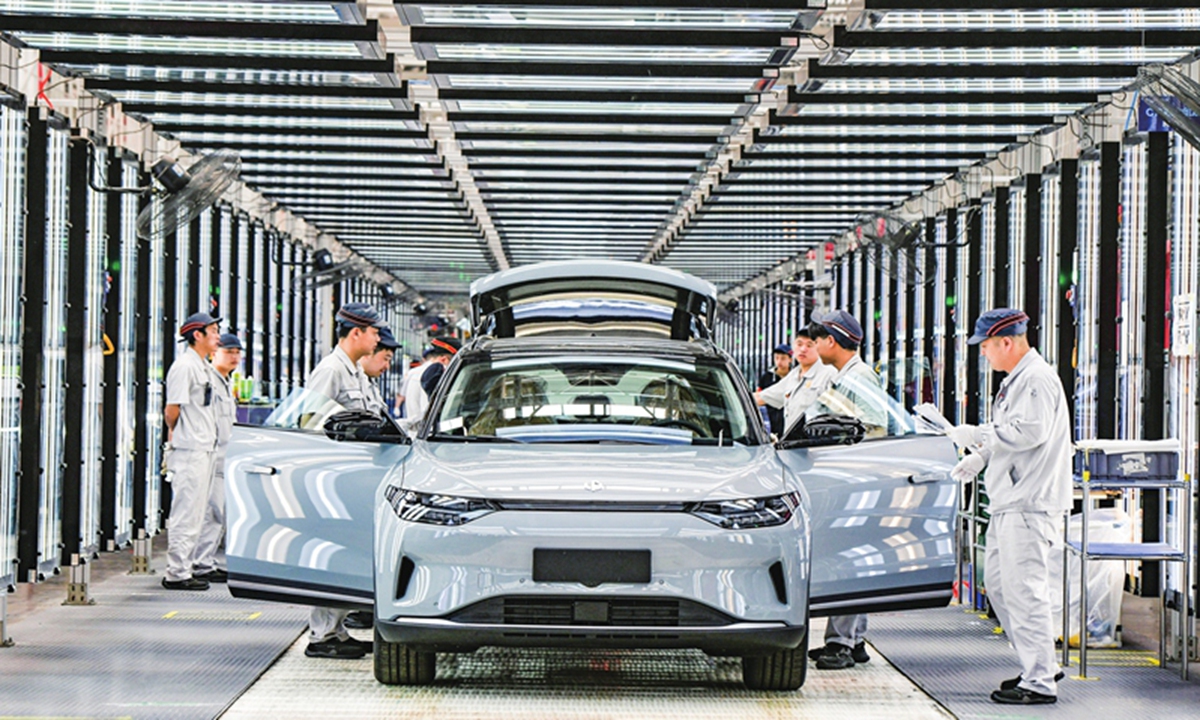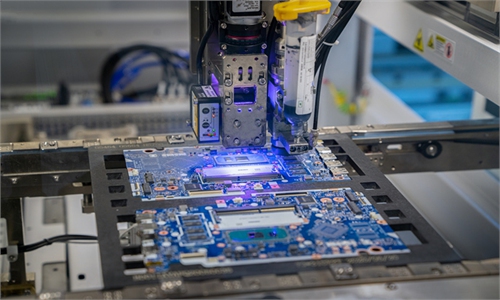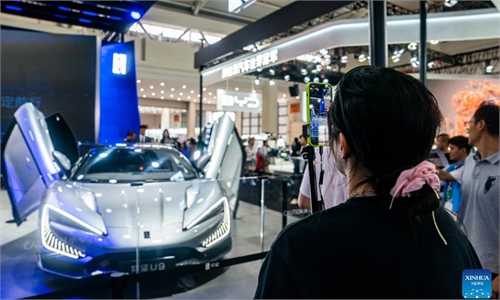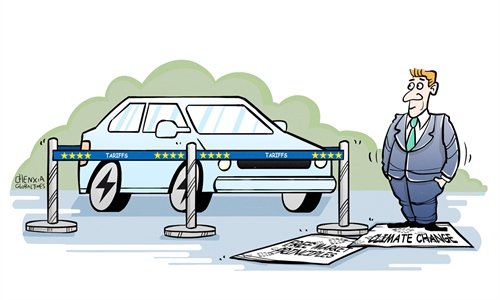High tariffs on Chinese EVs erode confidence in Chinese investments and operations in Europe, says Chinese automakers association

Workers complete assembling an electric vehicle (EV) at China's EV start-up Leapmotor in Jinhua, East China's Zhejiang Province on April 1, 2024. The smart EV factory delivered 14,567 new vehicles in March, a yearly increase of 136 percent. Photo: VCG
The China Association of Automobile Manufacturers (CAAM) on Wednesday expressed strong dissatisfaction and firm opposition to the EU's levying additional tariffs on China-made electric vehicles (EVs).
The EU unveiled draft definitive findings of the so-called anti-subsidy investigation into Chinese EVs on Tuesday. But the findings seriously distort the facts of China's EV industry, and the high tariffs to be imposed on Chinese EVs undermine the confidence of Chinese enterprises operating and investing in Europe, which have a serious negative impact on the development of the auto industry, the CAAM said.
According to the information disclosed by the European Commission on Tuesday, the tariff rate for BYD EVs was set at 17 percent; Geely at 19.3 percent, and SAIC, at 36.3 percent. The tariff rate on Tesla EVs made in Shanghai was set at 9 percent. Companies "cooperating with the EU's investigation" will face tariffs of 21.3 percent, while those "not cooperating" will be subject to 36.3 percent import duties.
In response, the CAAM said that the EU's high tariffs on Chinese EVs have brought great risks and uncertainty to the activities of Chinese enterprises in Europe, undermining the confidence of Chinese companies now operating in Europe, and will have a serious adverse impact on the development of the EU's automotive industry, local employment in the EU, and its green and sustainable development.
The CAAM hopes that the European side will consider the overall situation of China-Europe industrial cooperation, adhere to dialogue and cooperation, and jointly safeguard the development of China-Europe relations to create a fair, non-discriminatory and predictable market environment, and safeguard the security of global automobile industrial chain and supply chain.
On Tuesday night, a spokesperson from China's Ministry of Commerce said that the EU's investigation violated the principles of objectivity, fairness, non-discrimination and transparency, and did not conform to WTO rules.
"The definitive findings disclosure released by the EU side this time did not fully absorb China's opinions, but still insisted on wrong practices, ruled for high tariff rates, and also used samples to treat different types of enterprises in China, distorting the results of the investigation... China will take all necessary measures to resolutely defend the legitimate rights and interests of Chinese enterprises," the spokesperson said.
The EC's so-called definitive findings immediately drew criticism from the China Chamber of Commerce to the EU (CCCEU) on Tuesday. The chamber stressed that development of the European EV industry, along with the EC's own report, shows that there is insufficient evidence to prove that Chinese EVs are "causing significant material injury" to the EU market. The finding of the threat of injury was based merely on allegations, conjecture and remote possibilities, the CCCEU said.
Global Times



